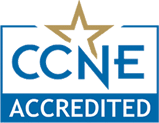Alumni
Nursing

WCU » Programs » LVN/LPN to BSN » Los Angeles

Earn your BSN in as few as 34 months at the Accelerated program pace
Complete 120 credits to earn your Bachelor of Science in Nursing degree
Your previous nursing licensure grants you 9 credits towards your BSN degree

Simulation labs to help you develop both skills and confidence in a safe environment
Clinical experiences at local healthcare facilities to help you gain real-life experience
All prerequisites included in the curriculum so you can segue from general education to nursing courses
No-cost tutoring to help you prepare for the licensure exam
According to the U.S. Bureau of Labor Statistics, the Los Angeles-Long Beach-Anaheim area is the metropolitan area with the second highest employment level for registered nurses in the nation.1 There are a range of diverse opportunities for RNs in the area.
Our LVN to BSN program in Los Angeles is designed to help licensed vocational nurses advance their education and prepare them to pursue new opportunities as registered nurses. You’ll build on your knowledge as a vocational nurse, practicing new skills and obtaining real-world experience through clinical rounds.
"*" indicates required fields
Personal Information you submit through our Sites, such as your name, address and other contact information, may be collected by West Coast University for internal marketing and development purposes as well as to respond to your inquiry, complete a transaction for you, or fulfill other forms of customer service. You can choose not to receive marketing from us by “unsubscribing” using the instructions in any marketing email you receive from us.
On-Campus
120 Credits
34 Months
7 Semesters
| Course Number | Course Name | Total Credit Hours |
|---|---|---|
| Number | Name | Hours |
| PATH 370 | Pathophysiology | 3 |
| PHIL 434 | Medical Ethics and Issues | 3 |
| Total Credit Hours: | 6 | |
| NURS 199D | Advanced Placement Credit (LVN) | 9 |
| Category and Requirements | WCU Course Requirements | Transferable / Options |
|---|---|---|
| Cat. and Req. | Trans. / Options | |
| Foundational Course | FYS 001(0): First Year Seminar (only offered at Los Angeles and Ontario Campuses prior to Spring II 2024) or FHE 100(3): Foundations of Higher Education (offered at all Campuses; Los Angeles and Ontario Campuses starting Spring II 2024) | Non-transferable |
| A1- Written Communication (5 Semester Credits and 2 Courses Minimum) | **ENGL 140(3): Written Communication I **ENGL 240(3): Written Communication II | Any equivalent courses that meet the General Education categorical requirements. |
| A2. Oral Communication (2.5 Semester Credits Minimum) | **SPCH 142(3): Oral Communication | Any equivalent courses that meet the General Education categorical requirements. |
| A3. Critical Thinking (2.5 Semester Credits Minimum) | **PHIL 341(3): Critical Reasoning | Any equivalent courses that meet the General Education categorical requirements. |
| A4. Quantitative Reasoning (5 Semester Credits and 2 Courses Minimum) | MATH 108(3): College Mathematics I MATH 211(3): Statistics | Any equivalent courses that meet the General Education categorical requirements. |
| B1– Social and Behavioral Sciences / Cultural Diversity, Tradition (8 Semester Credits and 3 Courses Minimum) | **PSYC 160(3): Psychology **PSYC 290(3): Life Span Psychology **HUM 370(3): Cultural Pluralism | Equivalent to PSYC 160 Equivalent to PSYC 290 Any equivalent courses that meet the General Education categorical requirements. |
| B2. Life and Physical Sciences (12 Semester Credits and 4 Courses Minimum) | ANAT 260(4): Human Anatomy PHYS 261(4): Human PhysiologyCHEM 280(4): Chemistry MICR 290(4): General Microbiology | Equivalent to ANAT 260 Equivalent to PHYS 261 Non-transferable at the Orange County Campus starting Summer I 2023 Equivalent to CHEM 280 Equivalent to MICR 290 |
| B3. General Education Capstone (3 Semester Credits) | CAPS 401(3): General Education Capstone (only offered at Los Angeles, Ontario Campuses prior to Spring II 2024) | Non-transferable |
| A minimum of 46 credits is required for graduation. | ||
Note: The following course must have been taken in the last 5 years: ANAT 260, CHEM 280, MICR 290, and PHYS 261.
Note: If scheduled, the following courses are to be taken at WCU: FYS 001, FHE 100, CAPS 401, and PATH 370 and PHYS 261 (Orange County campus only, starting Summer 1 2023).
**As of April 2019, this course will be delivered online, asynchronously, through the institution’s Learning Management System except where otherwise authorized by the Program Dean/Director.
| Course Number | Course Name | Total Credit Hours |
|---|---|---|
| Number | Name | Hours |
| NURS 110 | Introduction to Professional Nursing | 2 |
| NURS 180 | Pharmacology | 3 |
| NURS 190 | Physical Assessment | 2 |
| NURS 201 | Medical Surgical Nursing-Promoting Wellness | 3 |
| NURS 210L-AB | RN Skills Laboratory | 2 |
| NURS 211L | Medical Surgical Nursing | 3 |
| NURS 222 | Mental Health/Psychiatric Nursing: Promoting Wellness in the Mentally Ill | 3 |
| NURS 223L | Mental Health/Psychiatric Nursing: Promoting Wellness Practicum | 2 |
| NURS 225 | Nutrition in Health and Disease | 3 |
| NURS 306 | Expanding Family and Community (OB) | 2 |
| NURS 307 | Developing Family and Community (PEDS) | 2 |
| NURS 316L-A | Expanding and Developing Family and Community Practicum (OB) | 1.5 |
| NURS 317L-A | Developing Family and Community Practicum (PEDS) | 1.5 |
| NURS 340 | Public Health Nursing | 3 |
| NURS 342L | Public Health Nursing Practicum | 2 |
| NURS 350 | Research in Nursing | 3 |
| NURS 420 | Principles of Leadership and Management | 3 |
| NURS 431 | Disaster Management | 2 |
| NURS 440 | Issues and Trends in Nursing | 3 |
| NURS 480 | Advanced Medical Surgical Nursing: Promoting Wellness Practicum | 3 |
| NURS 481L | Advanced Medical Surgical Nursing: Promoting Wellness Practicum | 3 |
| NURS 493* | Integration of Nursing Concepts | 3 |
| NURS 497 | Nursing Capstone | 1 |
| NURS 498L | Integration of Nursing Practices | 3 |
| Total Credit Hours: | 59.0 | |
NURS 210L: (LVN/LPN to BSN students only)
*NURS 493R – Taken if student is unsuccessful in NURS 493.
Note: Upon satisfactory completion of the transition courses (NURS 110 and NURS 210L), the LVN/LPN to BSN student will receive 9 units of Advanced Placement Credit (NURS 199D or NURS 199E).
| Program Credit Distribution (LVN/LPN-BSN) | |
|---|---|
| Program Credit Dist.(LVN/LPN-BSN) | |
| Approved Credits from Previous Licensure | 9.0 |
| General Education Semester Credits | 46.0 |
| General Education within the Area of Study | 6.0 |
| Core Nursing Courses | 59.0 |
| Total Program Semester Credits | 120.0 |
We know school is a substantial commitment. At WCU, we want to equip you with all the information you need to make the right decision for your future.
Our goal is to give you a clear understanding of Los Angeles LVN to BSN tuition costs so you can be well-informed as you navigate the application and enrollment process. To assist you in your decision, we provide a breakdown below of the BSN program costs in Los Angeles at West Coast University.
We offer several financial aid options — including scholarships, grants, and loan access — to help support you through your studies.
Los Angeles, Orange County and Ontario Campuses
Enrolling prior to 4/1/24
| Degree Type | Bachelor of Science (Prior to Fall 1 2024) | Bachelor of Science (Starting Fall I 2024) |
| Total Program Credits | 1201
| 1201 |
| Program Length (Full-Time) | 7 semesters | 7 semesters |
| Full-Time Status (12 to 18 credits) | $17,892 | $18,250 |
| 3/4-Time Status(9 to 11 credits) | $14,914 | $15,212 |
| 1/2-Time Status (6 to 8 credits) | $11,578 | $11,810 |
| Less than 1/2-Time Status1 (under 6 credits) (per credit) | $1,986 | $2,026 |
| Total Tuition Costs (Full-Time) | $125,244 | $127,750 |
| Registration Fee (refundable) | $75 | $75 |
| STRF Fee2(non-refundable) | $335 | $342.50 |
| Estimated Total Book Costs3 | $4,948 | $5,078 |
| Estimated Total Book Shipping Cost3 | $495 | $508 |
| Estimate for Uniforms Fees3 | $130 | $250 |
| Estimate for Supplies & Licensure Preparation Fees3 | $2,345 | $2,345 |
| Technology Fee3($100 per semester) | $700 | $700 |
| General Education Resource Fee4 | $500 | $500 |
| Estimated Total Program Costs | $134,772 | $137,548.50 |
Enrolling after 4/1/24
| Degree Type | Bachelor of Science (Prior to Fall 1 2024) | Bachelor of Science (Starting Fall I 2024) |
| Total Program Credits | 1201 | 1201 |
| Program Length (Full-Time) | 7 semesters | 7 semesters |
| Full-Time Status(12 to 18 credits) | $17,892 | $18,250 |
| 3/4-Time Status(9 to 11 credits) | $14,914 | $15,212 |
| 1/2-Time Status(6 to 8 credits) | $11,578 | $11,810 |
| Less than 1/2-Time Status1(under 6 credits) (per credit) | $1,986 | $2,026 |
| Total Tuition Costs(Full-Time) | $125,244 | $127,750 |
| Registration Fee(refundable) | $75 | $75 |
| STRF Fee2(non-refundable) | $0 | $0 |
| Estimated Total Book Costs3 | $4,948 | $5,078 |
| Estimated Total Book Shipping Cost3 | $495 | $508 |
| Estimate for Uniforms Fees3 | $130 | $250 |
| Estimate for Supplies & Licensure Preparation Fees3 | $2,345 | $2,345 |
| Technology Fee3($100 per semester) | $700 | $700 |
| General Education Resource Fee4 | $500 | $500 |
| Estimated Total Program Costs | $134,437 | $137,206 |
| 10 Month Academic Year5 | ||||
| Prior to Fall I 2024 | Starting Fall I 2024 | |||
| with parents | off campus | with parents | off campus | |
| Federal Student Loan Fees | $100 | $100 | $100 | $100 |
| Course Materials (Personal Electronic Device-1st year only) | $1,000 | $1,000 | $1,000 | $1,000 |
| Living Expenses (Food & Housing) | $2,980 | $9,920 | $3,120 | $10,410 |
| Transportation | $2,060 | $2,060 | $2,160 | $2,160 |
| Miscellaneous Personal Expenses | $6,740 | $6,740 | $7,070 | $7,070 |
| Total | $12,880 | $19,820 | $13,450 | $20,740 |
1Includes 9 transfer credits for LVN license.
2 Effective April 1, 2024, the Student Tuition Recovery Fund (STRF) assessment rate will be zero dollars and zero cents ($0.00) per one thousand dollars ($1,000) of institutional charges.
The State of California established the Student Tuition Recovery Fund (STRF) to relieve or mitigate economic loss suffered by a student in an educational program at a qualifying institution, who is or was a California resident while enrolled, or was enrolled in a residency program, if the student enrolled in the institution, prepaid tuition, and suffered an economic loss. Unless relieved of the obligation to do so, you must pay the state-imposed assessment for the STRF, or it must be paid on your behalf, if you are a student in an educational program, who is a California resident, or are enrolled in a residency program, and prepay all or part of your tuition.
You are not eligible for protection from the STRF and you are not required to pay the STRF assessment, if you are not a California resident, or are not enrolled in a residency program.
It is important that you keep copies of your enrollment agreement, financial aid documents, receipts, or any other information that documents the amount paid to the school. Questions regarding the STRF may be directed to the Bureau for Private Postsecondary Education, 1747 N. Market Blvd. Ste 225 Sacramento, CA 95834, (916) 431-6959 or (888) 370-7589.
To be eligible for STRF, you must be a California resident or enrolled in a residency program, prepaid tuition, paid or deemed to have paid the STRF assessment, and suffered an economic loss as a result of any of the following:
To qualify for STRF reimbursement, the application must be received within four (4) years from the date of the action or event that made the student eligible for recovery from STRF.
A student whose loan is revived by a loan holder or debt collector after a period of noncollection may, at any time, file a written application for recovery from STRF for the debt that would have otherwise been eligible for recovery. If it has been more than four (4) years since the action or event that made the student eligible, the student must have filed a written application for recovery within the original four (4) year period, unless the period has been extended by another act of law.
However, no claim can be paid to any student without a social security number or a taxpayer identification number.
3 The Estimate for Book, Uniform, and Supply fees reflect the Manufacturer's Suggested Retail Price totals compiled in December 2022 and are subject to change. Supplies become student purchases once issued to student. Students who drop or have been dismissed after supplies have been issued will assume ownership for these items and will not be eligible for refunds. For details on all of the supplies, contact the Bursar Office.
LVN to BSN | Supplies issued in NURS 210L RN Skills Laboratory.
3 Technology Fee includes student technical support, Office 365, blended and online course delivery/learning management system, mobile app, student portal technology and access, and required electronic course materials/software.
4 The General Education Resource Fee includes costs associated with ATI Smart Prep materials. The General Education Resource Fee will be waived for Active Duty, Active Duty Spouse, Reserve, Reserve Spouse, Veterans, Veteran Spouse, Department of Defense employees, dependents utilizing parent's veteran's education benefits, and Veterans Affairs employees.
Note 1: Students who wish to take Challenge Exams will be subject to a fee of $100 for each Challenge exam. Please see the campus Bursar Office for a full price listing.
Note 2: Course Audits - If a course(s) is being audited. credits for these courses will be included for the student's schedule status for billing, based on the schedule statuses and amounts shown above. Pre-licensure Nursing students should refer to the program's Dismissal Policy for information surrounding course auditing.1 Students enrolled less than 1/2-Time are billed by the credit hour.
Note 3: The Total Tuition Cost can be converted to Cost per Credit Hour by using the following calculation:
Total Tuition Cost (Prior to Fall I 2024) ($125,244) divided by the Total Program Credits (120) = Cost per Credit Hour ($1,043.70).
Total Tuition Cost (Starting Fall I 2024) ($127,750) divided by the Total Program Credits (120) = Cost per Credit Hour ($1,064.58).
5 The purpose of the Cost of Attendance (COA) is to provide students and families with an estimated cost to attend West Coast University. The COA includes both direct and indirect cost estimates. Direct costs are paid directly to West Coast University and are shown separately for each program. Indirect costs are not paid to West Coast University and are estimates students may use to budget expenses they may incur while attending school. While actual indirect costs may vary, West Coast University estimates these amounts based on the number of months in an academic year and whether students will live with parents or off campus.
For admissibility into the LVN to BSN program, applicants must meet the following requirements:
For more information on program requirements, please visit our catalog.
New academic terms begin, on average, every 10 weeks. The number of semesters required for your program depends on the program pace you choose. For the most updated list of term start and completion dates, view the Academic Calendar.
When you study nursing at our Los Angeles campus, you can get hands-on practice at our technologically advanced simulation labs. With our immersive learning labs equipped with industry-current technology and high-fidelity manikins, you’ll be able to master your skills while gaining confidence in an environment where it’s okay to make mistakes.
Our LVN to BSN students work through simulated scenarios that mimic various types of medical settings, including:
Attend an info session to learn what all the buzz is about.

WCU-Los Angeles has a dedicated Clinical Placements team that builds relationships with healthcare facilities in the Los Angeles area. They can assist you in finding a local placement and preceptor that meets your needs. Additionally, the Clinical Placements team can help you with the process of tracking your hours to ensure you meet all your requirements.
As a WCU-Los Angeles student, you have access to a variety of tools to help you approach the NCLEX exam with confidence. Some of the resources at your disposal include:
The WCU Career Services team is your one-stop hub for career advice, professional development, and one-on-one assistance during your job search.2
As a WCU-LA student or graduate, you can go to the Career Services team for a variety of services, including:
Registered nurses can work in wide range of healthcare settings, including hospitals, schools, and doctor’s offices. According to the U.S. Bureau of Labor Statistics, RNs most commonly work in the following settings:

Dr. Katie Kay is the Dean for West Coast University’s College of Nursing where she provides direct oversight to the academic quality and delivery of prelicensure-through-doctoral nursing education. She is a nurse educator and leader with a collaborative, service-oriented mindset. Dr. Kay remains passionate about accessibility for both education and healthcare to improve the way we are delivering care to the communities we serve. Prior to her appointment at West Coast University, Dr. Kay served as the Vice President of Healthcare Academics at Emeritus where she was the in-house expert for nursing and healthcare education. In her time at Emeritus, she partnered with several leading academic institutions to create high-quality, accessible, and affordable upskilling and reskilling programs to address key gaps in healthcare delivery and healthcare leadership. Dr. Kay has also previously held the title of Senior Director of National Academic Operations at Chamberlain University, where she was responsible for providing leadership to university-wide academic, quality, and experiential learning initiatives. In her tenure at Chamberlain University, she also worked as adjunct faculty and held the role of Associate Dean of Faculty in the Master of Science in Nursing Family Nurse Practitioner track.
Her passion for accessibility also stems from her work as an administrator at a large metropolitan hospital where she had oversight of the day-to-day operations of 22 inpatient units. Primary areas of leadership included patient safety, acuity management, throughput, accreditation, advocacy for professional nursing practice, and re-attainment of Magnet distinction.
The most recent publications for Dr. Kay include The 3 P’s: Pharmacology Physical Assessment, and Pathophysiology (Crowley, Wallace, Letz, and Kay) and a poster presentation titled “Innovative Approaches to Clinical and Practicum Placements.”
Dr. Kay is a member of the American Association for Critical Nurses, the National League of Nursing, and the American Organization for Nursing Leadership, and she serves as the Executive Director for the Association of Psychiatric Mental Health Nurse Practitioners.

Dr. Piazza has been working in the university since 2009. Her past roles included Faculty; Campus Associate Dean of Nursing, Academics; Campus Dean of Nursing; and Associate Dean, College of Nursing. Most recently, she has been appointed to the position of Dean, College of Nursing.
She has a Doctor of Philosophy in Nursing from the University of San Diego, a Master of Education from Cambridge College, and a Bachelor of Science in Nursing from the University of California, Los Angeles.
With a commitment to community service, Dr. Piazza is a Commissioner for the Sister Cities Commission of Anaheim. And has previously served as Commissioner, Orange County Human Relations, and Board Member for the School Nurses of California Foundation.
At WCU-Los Angeles, students can earn their BSN in as little as 34 months.
The LVN to BSN program in Los Angeles helps your bridge the gap between your knowledge as a vocational nurse and the knowledge expected of a BSN graduate. The program builds on your previous experience and education to help you earn your degree.
Yes! Graduates of the LVN to BSN program are eligible to sit for the NCLEX licensure exam to become registered nurses. Additionally, as a student or graduate of WCU, you get one-on-one support as you prepare for your licensure exam, including access to advisors, practice exams, and more.
Financial aid and scholarships are available for those who qualify. When you apply to our LVN to BSN program, our financial aid advisors can help you explore your options. For more information on the institutional grants available at WCU-Los Angeles, please visit the Undergraduate On-Ground Scholarships and Grants page on our online catalog.
And for more information on other forms of financial aid available, visit our Financial Aid page.

The baccalaureate degree program in nursing, master’s degree program in nursing, Doctor of Nursing Practice program, and post-graduate APRN certificate program at West Coast University are accredited by the Commission on Collegiate Nursing Education 655 K Street, Suite 750, Washington DC 20001, (202) 877-6791 (www.ccneaccreditation.org).
Pursuing your degree is a big choice. Fill out our form and one of our admissions advisors will contact you to answer any questions you may have!
Financial aid and scholarships are available for those who qualify.
1 Bureau of Labor Statistics, U.S. Department of Labor, Occupational Employment and Wage Statistics, Last modified March 31, 2022
2 WCU provides career guidance and assistance but cannot guarantee employment.
3 Bureau of Labor Statistics, U.S. Department of Labor, Occupational Outlook Handbook, Registered Nurses, “Work Environment,” Updated Sept. 8, 2022